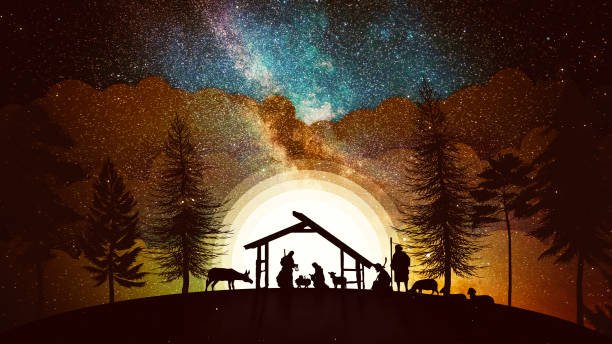“For unto us a child is born, unto us a son is given: and the government shall be upon his shoulder: and his name shall be called Wonderful, Counsellor, The mighty God, The everlasting Father, The Prince of Peace.”
(Isaiah 9:6)
The holiday of Christmas is celebrated by many people around the world as the time to remember and rejoice in the birth of Jesus Christ, the Son of God who came into the world to bring salvation.
Though modern celebrations often include gifts, trees, and decorations, the original meaning of Christmas is deeply connected to events recorded in the Bible.
To understand the roots of Christmas, we must look back to the time of Jesus’ birth and how it was foretold and fulfilled in Scripture.
The Promise of a Savior
Long before Jesus was born, God made a promise to His people that a Savior would come to rescue them from sin and bring peace.
The Old Testament contains many prophecies about this Savior, who would come from the family of David and be born of a virgin.
One of the most well-known prophecies is found in Isaiah.
“Therefore the Lord himself shall give you a sign; Behold, a virgin shall conceive, and bear a son, and shall call his name Immanuel.”
(Isaiah 7:14)
This promise gave hope to the people of Israel, who were waiting for God to send someone to deliver them and restore their relationship with Him.
The Birth of Jesus in Bethlehem
The New Testament tells us how this promise came true through the birth of Jesus in a small town called Bethlehem.
Mary, a young woman chosen by God, was visited by the angel Gabriel, who told her she would give birth to the Son of God.
Even though she was not yet married, Mary believed the angel and obeyed God.
Her husband Joseph also trusted the message from God and took Mary to be his wife.
When it was time for Jesus to be born, Mary and Joseph had to travel to Bethlehem because of a government order for a census.
They could not find a proper place to stay, so Mary gave birth to Jesus in a stable and laid Him in a manger.
“And she brought forth her firstborn son, and wrapped him in swaddling clothes, and laid him in a manger; because there was no room for them in the inn.” (Luke 2:7)
The Visit of the Shepherds
The night Jesus was born, an angel appeared to some shepherds in the fields near Bethlehem.
The angel told them the good news that the Savior had been born.
They were afraid at first, but the angel said not to fear and invited them to go see the baby.
“For unto you is born this day in the city of David a Saviour, which is Christ the Lord.”
(Luke 2:11)
The shepherds went quickly and found Mary, Joseph, and baby Jesus, just as the angel had said.
They returned full of joy and praised God for what they had seen and heard.
The Role of the Wise Men
After Jesus was born, some wise men from the east saw a special star in the sky and followed it to find the newborn King.
They traveled a long distance and brought gifts of gold, frankincense, and myrrh to honor Him.
Their visit showed that Jesus came not only for the Jewish people but for all nations.
“When they saw the star, they rejoiced with exceeding great joy.”
(Matthew 2:10)
“And when they were come into the house, they saw the young child with Mary his mother, and fell down, and worshipped him.”
(Matthew 2:11)
Why Christians Celebrate Christmas
Christians celebrate Christmas to remember the birth of Jesus Christ, who is the Son of God and the Savior of the world.
His birth is not just a historical event but a reminder of God’s love for all people.
Even though the Bible does not mention the exact date of Jesus’ birth, believers take this time to thank God for sending His Son.
Christmas is about much more than presents and lights—it is about the coming of Jesus into the world to bring hope, peace, and salvation.
“Thanks be unto God for his unspeakable gift.” (2 Corinthians 9:15)

